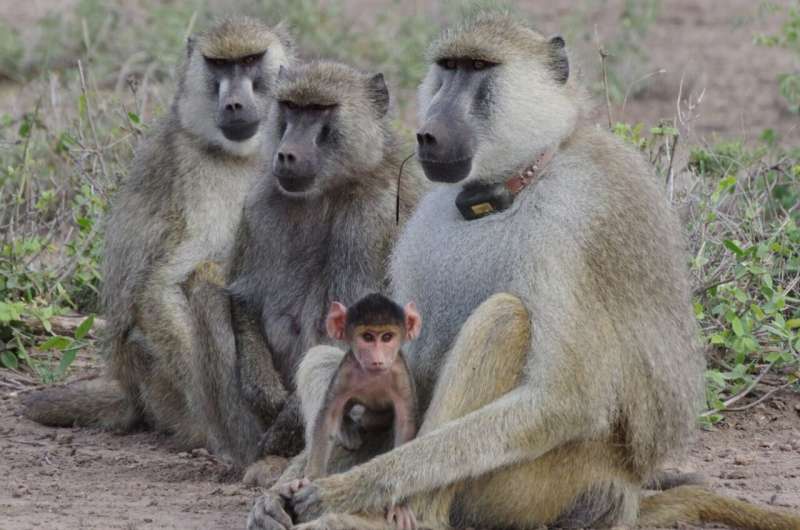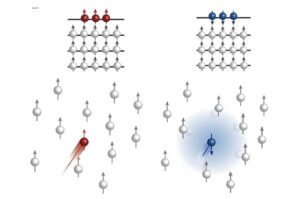
In a groundbreaking study published on July 5, 2025, researchers from the University of Notre Dame have discovered that strong early-life bonds between father and daughter baboons can significantly extend the lifespan of female offspring. This research, published in the Proceedings of the Royal Society B, reveals that female baboons with close paternal relationships tend to live two to four years longer than those without such bonds.
While it is common knowledge that baboon mothers provide all essential care, the study highlights the unexpected benefits of paternal presence and interaction. Elizabeth Archie, a professor of biological sciences at Notre Dame and the corresponding author of the study, explains that male baboons, after achieving peak reproductive success, often shift into a more paternal role. “They sort of slide into ‘dad mode,’ where they don’t disperse as much and have time to invest in their kids,” Archie noted.
Research Findings and Methodology
The research team observed 216 female baboons and their fathers in the Amboseli ecosystem of East Africa. They found that about one-third of the daughters lived in the same social group as their fathers for three years or more. The remaining two-thirds had fathers who either left the group or died within their daughter’s first three years of life.
Researchers also examined the grooming habits of juvenile females with their fathers and other adult males. Grooming serves as a form of hygiene and social bonding, akin to “having a cup of coffee and a good chat,” according to Archie. The study concluded that daughters with strong father-daughter relationships or those who co-resided with their fathers for three years or more lived significantly longer.
“Early life adversity has a powerful effect on lifespan, so this study suggests that having a dad allows females that have experienced other forms of adversity to recover some of those costs,” Archie said.
Implications for Understanding Parental Roles
This study challenges the traditional view that male mammals contribute little to offspring care. In baboons, even minor paternal contributions have substantial impacts. Strong father-daughter grooming relationships were linked to increased survival, while similar relationships with other adult males did not predict longevity.
Archie suggests that male baboons may enhance their offspring’s social networks by being popular within their groups. “An infant who’s hanging out near a male has more diverse social interactions than if they’re only hanging out with mom,” she explained. Fathers may also provide a “safety zone” for their daughters, intervening in conflicts and protecting them from other group members.
Evolutionary Insights and Future Research
These findings may offer insights into the evolutionary roots of human parental care. The study is part of the Amboseli Baboon Research Project, one of the longest-running primate studies globally, co-directed by Archie, Susan Alberts from Duke University, and Jenny Tung at the Max Planck Institute for Evolutionary Anthropology.
In addition to Archie, Alberts, and Tung, the study’s co-authors include David Jansen at the University of Wisconsin-Madison and J. Kinyua Warutere at the Amboseli National Park in Kenya. Their collaborative efforts continue to shed light on the complex social dynamics and survival strategies of baboons.
As the research community reflects on these findings, future studies may explore the broader implications of paternal involvement in other species, potentially reshaping our understanding of mammalian social structures and evolutionary biology.







